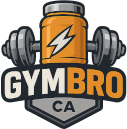Unveiling the Secret Superpowers of Vitamin B12: The Ultimate Energy and Health Game-Changer
Feeling drained, battling brain fog, or simply looking to unlock vibrant energy? You might be overlooking a powerful ally—Vitamin B12, also known as cobalamin. This might just be the missing key to enhancing your well-being and vitality. Essential for red blood cell formation, neurological function, and DNA synthesis, B12 is more than just another supplement—it's a vital component for a healthy lifestyle.
Despite its importance, many remain unaware of its potential to prevent megaloblastic anemia, support cognitive health, and maintain energy levels. Intriguingly, vitamin B12 can't be synthesized by plants—posing a unique challenge for vegetarians and vegans who must seek it in fortified foods or supplements to avoid deficiency.
Could this be your ultimate health ally? You won’t want to miss how incorporating B12 could transform your daily life. Let’s delve into the fascinating science and discover what makes this vitamin an indispensable powerhouse.
Health benefits of Vitamin B12 (Cobalamin)
Vitamin B12, commonly known as Cobalamin, is indispensable for various biological functions, making it essential for optimal health. Its roles extend from energy metabolism to maintaining neurological and blood health, underlining its importance in sustaining and enhancing bodily functions.
Key Health Benefits
- Prevents Megaloblastic Anemia
Vitamin B12 is pivotal in the production of red blood cells. It prevents megaloblastic anemia, a condition where abnormal large red blood cells form, often leading to symptoms of fatigue and weakness.
- Promotes Neurological Health
Cobalamin plays a vital role in preserving nerve cell health and supporting cognitive function. Maintaining adequate Vitamin B12 levels can decrease the risk of neurological disorders and cognitive decline, sustaining brain health as you age.
- Supports Energy Metabolism
Integral to the metabolism of fatty acids and amino acids, Vitamin B12 facilitates energy release from food, helping maintain energy levels throughout the day, which can be particularly beneficial for active individuals.
- Essential for DNA Synthesis
Critical for DNA synthesis and cellular reproduction, Cobalamin is vital for the growth and repair of cells, which includes those in the immune system, supporting overall cellular health and resilience.
Incorporating Vitamin B12 for Optimal Health
Given its comprehensive health benefits, ensuring adequate Vitamin B12 intake is crucial for maintaining key physiological functions. For those interested in bolstering their intake, especially vegetarians and vegans, you might consider supplementing with a high-quality option. Boost your energy and support your nervous system with Jamieson's Vitamin B12 Methylcobalamin 250 mcg tablets!
Next, we'll explore dietary sources to help meet Vitamin B12 requirements, particularly for those who may not obtain sufficient quantities through diet alone.
Dietary Sources of Vitamin B12 (Cobalamin)
Explore the best natural sources of Vitamin B12, an essential nutrient crucial for red blood cell formation, nervous system health, and DNA synthesis. Since plants do not produce Vitamin B12, it is especially important for vegetarians and vegans to focus on fortified foods and supplements.
Natural Sources of Vitamin B12
- Animal Liver and Kidney
Lamb liver and kidneys are among the richest sources of Vitamin B12, providing more than the daily recommended intake. These organs contain high levels of active B12 forms, essential for various bodily functions.
- Shellfish (Clams, Oysters)
Clams and oysters are excellent sources of Vitamin B12. A 3-ounce serving of clams can provide several times the daily recommended intake, making them ideal for non-vegetarians.
- Fish (Sardines, Salmon, Tuna)
Sardines, salmon, and tuna are rich in omega-3 fatty acids and provide substantial amounts of Vitamin B12. Sardines, in particular, can fulfill the recommended daily intake in just one serving.
- Dairy Products
Milk, yogurt, and cheese contain reasonable amounts of Vitamin B12 and are significant for those with dietary restrictions on meat and fish, especially when consumed regularly.
- Fortified Foods
For vegetarians and vegans, fortified foods such as plant-based milk alternatives (soy, almond, oat), breakfast cereals, and nutritional yeast can be valuable sources of Vitamin B12. Fortification helps ensure that those on plant-based diets obtain this crucial nutrient.
Challenges in Meeting Vitamin B12 Needs
While these natural and fortified sources are available, many people, especially those with plant-based diets, struggle to meet their daily Vitamin B12 needs naturally. This challenge arises from dietary preferences or restrictions, availability of fortified options, and individual absorption issues. This is why considering supplements can bridge any gaps. For those looking to ensure their Vitamin B12 intake is adequate, Boost your energy and support your nervous system with Jamieson's Vitamin B12 Methylcobalamin 250 mcg tablets can be an effective option, providing a reliable source of this vital nutrient.
Incorporating Vitamin B12-Rich Foods
Including these natural sources of Vitamin B12 in your diet is essential for preventing deficiencies and supporting critical body functions like energy production and neurological health. Next, we'll explore the daily recommended intake of Vitamin B12 and discuss how these sources can be part of a thoroughly balanced diet to help achieve optimal health.
Daily Intake for Vitamin B12
Vitamin B12, also known as cobalamin, is essential for supporting red blood cell production, neurological health, and DNA synthesis. This vitamin is crucial for maintaining proper nerve function and energy metabolism, making it an indispensable component of your daily nutritional intake. It is primarily found in animal products, so vegetarians and vegans should pay special attention to their B12 levels through dietary sources or supplementation.
Recommended Daily Intake
- 0-6 months: 0.4 mcg per day
- 7-12 months: 0.5 mcg per day
- 1-3 years: 0.9 mcg per day
- 4-8 years: 1.2 mcg per day
- 9-13 years: 1.8 mcg per day
- Teens 14-18 years: 2.4 mcg per day
- Adults: 2.4 mcg per day
- Pregnant teens and women: 2.6 mcg per day
- Breastfeeding teens and women: 2.8 mcg per day
Meeting Your Daily Vitamin B12 Needs
Consistently meeting your Vitamin B12 requirements is vital for sustaining energy and cognitive function. This nutrient is naturally found in animal-derived foods like meat, dairy, and eggs, which are key sources. For individuals with dietary restrictions, fortified foods and supplements are a practical way to achieve adequate intake. For those considering a supplement, you can boost your energy and support your nervous system with Jamieson's Vitamin B12 Methylcobalamin 250 mcg tablets.
Understanding the importance of Vitamin B12 helps prevent deficiency symptoms and promotes overall well-being. By maintaining proper levels, you ensure that your body functions optimally each day.
Deficiency of Vitamin B12
Vitamin B12, or cobalamin, is a crucial nutritional powerhouse indispensable for red blood cell formation, protecting your nervous system, and ensuring proper DNA synthesis. However, an oversight in maintaining adequate levels of this vital nutrient can lead to severe health repercussions that affect various body systems.
Deficiency Symptoms and Consequences
- Megaloblastic Anemia
This condition arises when large and immature red blood cells are produced, due to inadequate DNA synthesis linked to a vitamin B12 deficiency. Symptoms can include fatigue, a pale complexion, and shortness of breath—all indicators you might not be getting enough of this key vitamin.
- Neurological Disorders
One of the more alarming consequences of vitamin B12 deficiency is damage to the myelin sheath, the protective layer around nerves. This damage can result in numbness, tingling in your hands and feet, difficulty walking, memory problems, and even cognitive decline—highlighted to catch your attention for urgent action.
- Increased Homocysteine Levels
Vitamin B12 plays a pivotal role in converting homocysteine into methionine. A deficiency here can elevate homocysteine, raising your risk of cardiovascular problems—an often overlooked yet serious consequence.
- Glossitis and Mouth Ulcers
Painful inflammation of the tongue, known as glossitis, and mouth ulcers can arise, adversely affecting oral health and making eating a distressing experience, pointing towards a potential deficiency that requires immediate attention.
- Mood Disturbances
The association between low B12 levels and mood disturbances, such as depression and irritability, is well-recognized due to its crucial involvement in neurotransmitter regulation. If you’re experiencing mood dips, it might be time to investigate further.
Preventing Vitamin B12 Deficiency
Especially for those on vegetarian or vegan diets, ensuring adequate Vitamin B12 intake is imperative since plants don't produce this nutrient. Incorporating fortified foods or supplements can help you maintain optimal levels and stave off the adverse effects of a deficiency. For those looking to keep their energy levels robust and safeguard their nervous system, consider these Jamieson Vitamin B12 Methylcobalamin 250 mcg tablets as a reliable option. Now, let's delve into some prevalent questions about Vitamin B12 deficiency and how to prevent it.
Conclusion
As you navigate your fitness and health journey, Vitamin B12 emerges not just as a supplement but a cornerstone of vitality and well-being. Imagine a world where fatigue is a thing of the past, and mental clarity supports your every move. Are you ready to harness the potential that Vitamin B12 offers?
Now, let's switch gears a bit. Reflect on how often we overlook small nutritional gaps with big consequences. Have you considered where your B12 intake is coming from? How vibrant could your day-to-day be if you made informed choices today?
Empowered with this newfound knowledge, what's your next step? Whether you're a meat-lover or plant-based enthusiast, identifying the best dietary sources or considering fortified options and supplements could redefine your energy and focus levels. Remember, small decisions lead to big changes, and your commitment to understanding your nutritional needs paves the way for this transformation.
We'd love to hear from you! What’s your secret weapon for keeping your energy levels high and steady? Comment below or join the conversation—because discussions like these not only enrich our knowledge but build a healthier community, one insight at a time.

